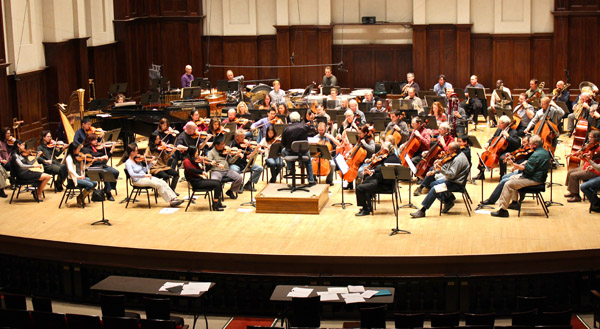
EarShot reveals the method behind the sound at the DSO
A casual Sunday for the DSO still embodies consummate professionalism.
It is always an enlightening experience to see artists alive in their medium. As someone relatively unschooled in the finer points of orchestral performance and composition, the EarShot readings of new work by African-American composers—which took place in an exhibition open to the public at the DSO on Sunday, March 9th—was an incredible behind-the-scenes look at the mastery of the medium that can sometimes be taken for granted when you see the DSO in its professional performative mode.

EarShot composers: Kevin Scott in the hot seat (front row, left of center aisle), while Erica Lindsay, Matthew Evan Taylor, and Jonathan Bailey Holland wait their turn (front row, right of center aisle).
Under the baton of Leonard Slatkin, the DSO read through four pieces that were brought to the table from all corners of the country by up-and-coming composers Jonathan Bailey Holland, Erica Lindsay, Matthew Evan Taylor, and Kevin Scott. It is one thing to intellectually understand that at the level of symphony orchestra, we are dealing with top musicians, able to wield an impressive array of technical and artistic skills—it is another entirely to see a full 80-piece orchestra sit down and, over the course of half an hour, execute a performance of new work on sight.

Kevin Scott’s piece, “A Point Served…(In Remembrance Arthur Ashe),” led off the afternoon.
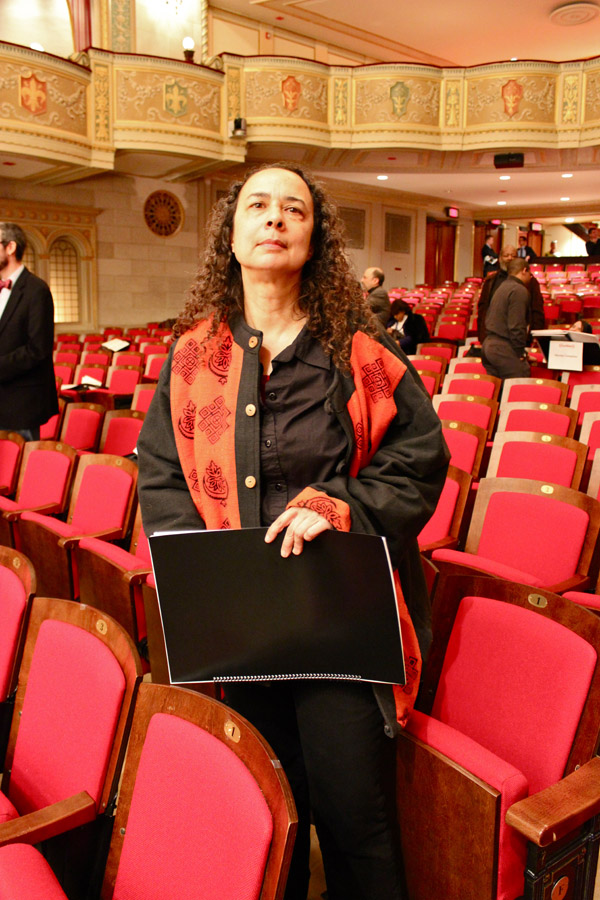
Erica Lindsay’s “Mantra” followed, with a percussive gymnastics based in African polyrhythms.

Following the break, Matthew Evan Taylor’s “Three Glorious Days” brought us back into action.
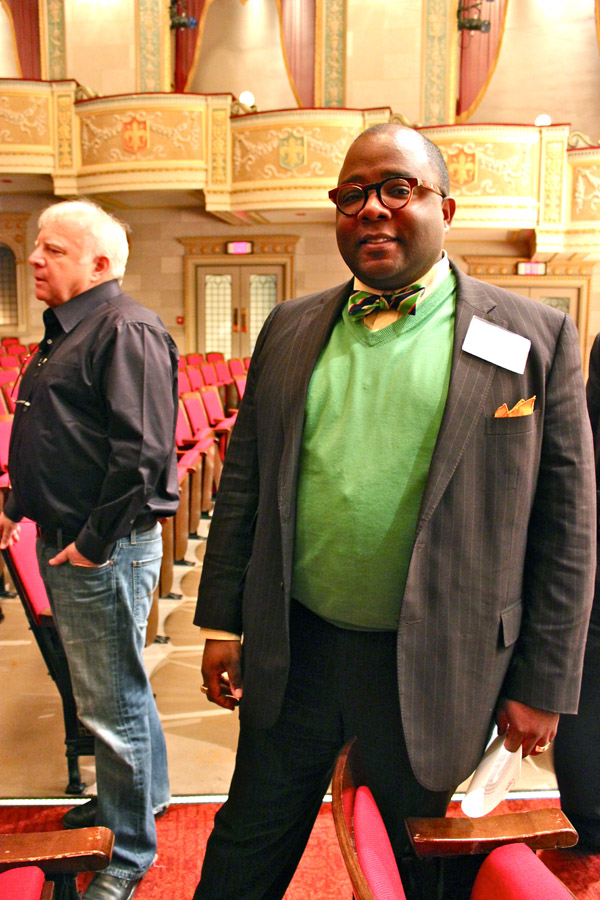
Jonathan Bailey Holland’s “Shards of Serenity” rounded out the afternoon (conductor Leonard Slatkin on the left).
Though the pieces contained beautiful surprises and outstanding soloists—Scott’s tribute to Arthur Ashe invoked “We Shall Overcome” in the finale, or Lindsay’s extraordinary drum solos, impressively executed by principal percussionist Joseph Becker—the overall champion of the afternoon was DSO conductor Leonard Slatkin, whose ability to troubleshoot the scores upon cold read was impressive to say the least. Within the crowd, too, were a legion of sight-readers, turning pages in tandem as the music took flight within the soaring acoustic capacity of the DSO.
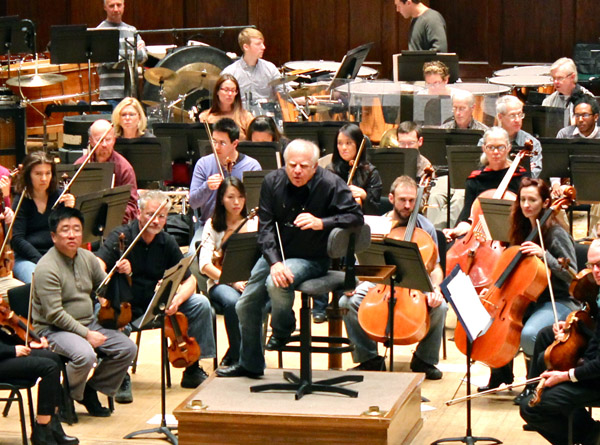
Slatkin would pause during an initial examination of difficult cues to advise each composer.
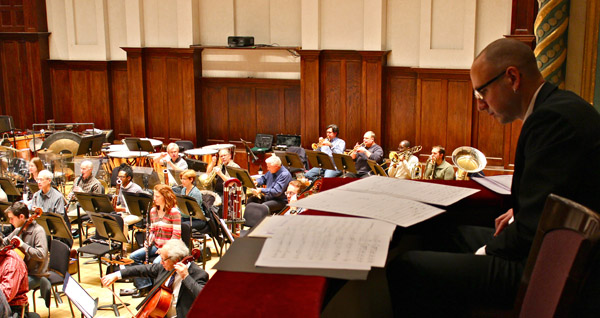
It seemed the majority of audience members on hand were gifted sight readers, following along on scores of their own.
The event—nerve-wracking though it must have been for the composers—had a comfortably casual feel, with the orchestra and attendees in street clothes, Slatkin in jeans, and everybody tuned to a lower frequency than inspired by a standard performance. The banter between players, composers, and conductor was crisp and businesslike, reminding onlookers again of the incredibly virtuosity of these players, but also punctuated by moments of humor and genuine mentorship toward these composers, who each took a professional step forward in an experience that will surely remain with them and us for a long time to come.
Catch the DSO in their element in upcoming performances or subscribe for the 2014-2015 season.
Detroit Symphony Orchestra: 3711 Woodward Ave., Detroit; 313-576-5111; www.dso.org
Recent Content
-
Artsarticle ·
-
Artsarticle ·
-
Artsarticle ·

